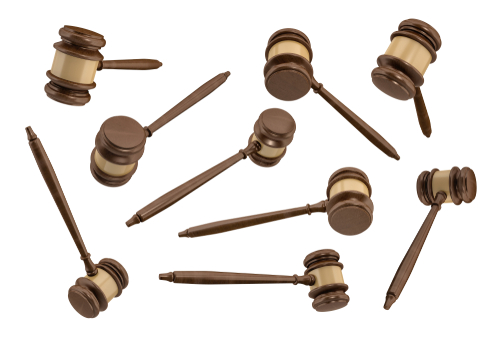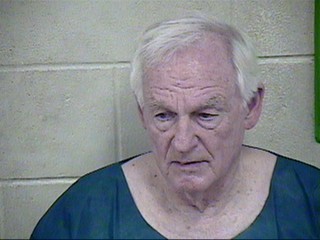Citing disbarred lawyer’s ‘grudging acceptance of responsibility,’ judge bars readmission in federal court
Ethics
Citing disbarred lawyer’s ‘grudging acceptance of responsibility,’ judge bars readmission in federal court
July 6, 2022, 3:23 pm CDT
Image from Shutterstock.
A disbarred lawyer reinstated to law practice in Massachusetts didn’t fare as well when seeking the right to practice in federal district court.
The U.S. District Court for the District of Massachusetts refused to allow Boston criminal defense lawyer Robert A. George Sr. to resume practice before the federal court, Law.com reports.
Chief U.S. District Judge F. Dennis Saylor IV wrote the June 28 opinion denying George’s bid to practice before the court. George “continues to minimize” his conduct after being convicted of seven felony counts in 2012 for money laundering and related crimes, Saylor said.
Saylor said the June 2012 criminal convictions “standing alone, are profoundly troubling. He committed the crimes solely for financial gain; not only was there no excuse, there were no mitigating factors (such as youth, addiction or mental-health problems). Furthermore, during the same period, he had failed to pay any state or federal income taxes for four years.”
The unpaid federal taxes, plus interest and penalties, amounted to more than $563,000, Saylor said. George’s unpaid state taxes were more than $175,000. George negotiated a $25,000 settlement with the Internal Revenue Service on his unpaid federal taxes, and he is paying $500 a month on his state taxes.
To be reinstated in such circumstances, an applicant “must demonstrate a complete acceptance of responsibility and extraordinary remorse and rehabilitation,” Saylor said. Instead, George continues to “cast much of the blame for his criminal conduct to the impact of his busy law practice rather than his own personal failings. Furthermore, his complete disregard of his tax obligations, for which he has expressed no remorse or regret at all, likewise suggests a disturbing lack of respect for the law.”
George had been sentenced to 42 months in prison after his conviction for laundering money for a client who contacted the Drug Enforcement Administration and agreed to become an informant. George put the client in contact with a mortgage broker and took a cut of the money.
George was released in October 2015 after serving 33 months in prison. During his reinstatement proceedings, George said he wasn’t sure why he got caught up in money laundering. “I do know this,” George said. “I never found it easy to say no to anybody, especially to clients.”
At the time of his arrest, George said, he was “a thousand percent immersed up to my neck in a busy, high stress, high profile criminal defense practice. … Back then I never said no. I overextended myself. I used to think there was nothing I couldn’t do or I couldn’t accomplish. And I thought I was—I actually—I thought I was infallible. And I think I lost track of how fast I was moving and how deep I was in.”
When asked if he was entrapped, George said jurors did not believe he was and he accepted the verdict. He doesn’t believe he will offend again because he plans to practice “on a much more low profile, a quiet scale,” he said.
George attributed his failure to pay income taxes to his episodic income during law practice. He always filed his returns with the help of an accountant, he said, but he “got into a bad habit of paying late.”
Saylor said George’s acceptance of responsibility “is grudging at best.” George “is free to assert that he committed the crimes because he was ‘too busy’ and ‘too negligent’ to obey the law. But that is not an expression of complete remorse, and this court declines to construe it as such,” Saylor wrote.
Law.com spoke with George’s lawyer, Thomas F. Maffei, who said he and his client “are obviously very disappointed.” He noted the Massachusetts Supreme Judicial Court had readmitted George “after a lengthy proceeding and examination of the substantial evidence in support of Bob’s reinstatement.”
George will likely seek a hearing before the full district court panel, Maffei told Law.com.






